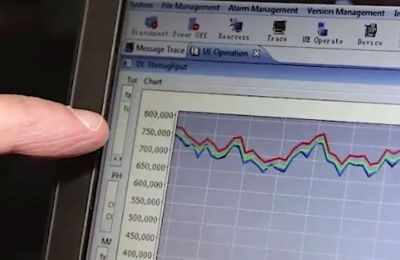5G mobile data in Finland moves forward with frequency auction
Finland hopes to be among the first to deploy 5G Mobile Networks. The minister of Transport and Communications, Anne Berner, will distribute the first 3400-3800 Megaherz spectrum rights in 2018. This means licenses would be valid from January 1st, 2019.
The frequency spectrum gives telecom operators to run their networks at a specific range of the available bandwidth range. Earlier the Finnish government has auctioned these at a price, for 700 and 700 MHz ranges for 4G LTE - and it aims to do so for 5G networks as well.
A quick adoption of the 3,5 GHz range means that operators will be able to start transmitting data soon. Rapid deployment of 5G technology is something the telecom operators are also driving. The new auctioned spectrum is especially tempting as it has a wide 400 MHz range, which is over four times to the current 4G networks
Operators can start building new networks when they've got the licenses from the Ministry of transport and communications, which means that the commercial 5G networks could be operational in Finland from the beginning of 2019.
5G to ease 4G congestion and help expand broadband
The driving force behind the fast adoption of fifth generation mobile data networks is the digital infrastructure programme. The strategy work is expected to be completed this spring. It includes measures to ensure the country has good networking hardware.
This means adopting 5G technology and extending fibre networks. In many remote areas there is no feasible broadband access. Even though 4G already covers 99% of the population, the 4G network can become congested with large numbers of users. Flat rate pricing in the country is also reasonable, driving mobile data use among th population.

5G technology will offer limited range, but can help suburban communities that still rely on copper based technologies like ADSL. These remain a reliable option, but with a maximum badwidth of some 16 Mbit in real conditions they are a bottle neck for consuming digital services.
The finnish telecom companies are already progressing with field trials. In a recent article in Kauppalehti, a financial newspaper, operator Elisa showed 5G technology running in Helsinki. In this specific trial the 4G connection provided 50 MBit/s speed, where as the preproduction 5G equiment from Huawei yielded over 700 MBit/s speeds constantly.
The bandwidth increase of over ten times is significant and could play a key part in providing access to the ever growing number of users and devices accessing mobile networks to send data. This is the digital infrastructure the country needs to stay competitive in the future.

